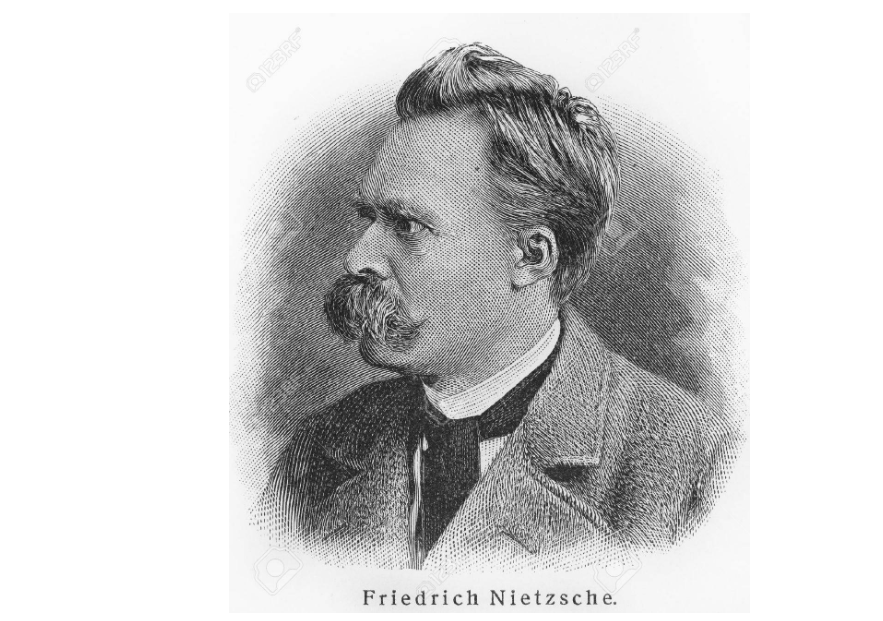
‘How One Becomes What One Is’
Some Personal Reflections on the grounds of Self-Knowledge in Ibn ‘Arabi and Friedrich Nietzsche.
Saturday March 25th, 2023 (2-5pm)
Seminar led by Peter Coates
The October Gallery, London, UK
Description
“Man is a rope, fastened between animal and superman – a rope over an abyss. A dangerous going-across, a dangerous wayfaring, a dangerous looking-back, a dangerous shuddering and staying-still. What is great in man is that he is a bridge and not a goal; what can be loved in man is that he is a going-across and a down-going.” (Nietzsche, Friedrich. Thus Spoke Zarathustra)
Mystic, philosopher, poet, sage, Muhyiddin Ibn ‘Arabi (1165-1240) was one of the world’s great spiritual teachers. He was born in Murcia in Arab al-Andalus, and his writings had an immense impact throughout the Islamic world and beyond. The universal ideas underlying his thought are of immediate relevance today (reference here)
Friedrich Nietzsche (1844 – 1900) was born in Germany. His father was a Lutheran Pastor whose tragic death when Friedrich was hardly five years old affected him deeply. Friedrich Nietzsche was a brilliant student and eventually turned to Classical Philology. At the age of only 24 he was appointed Chair of Classical Philology at University of Basel, Switzerland. He also spent some brief time as a medical orderly in the Franco-Russian war (1870-71). His extraordinary critical writings have been extremely influential on much modern thought: “I am not a man I am Dynamite”, he said. His most famous statement is, of course, “God is dead”. Nevertheless, the implications of his monumental replacement-concept of the Übermensch offers profound and surprisingly numinous insights into the very nature of self-knowledge.
Peter Coates is the author of “Ibn ‘Arabi and Modern Thought” (2002), the first book to systematically examine modern thought in the light of the universal vision of Ibn ‘Arabi. He was Senior Lecturer in the Department of Psychology at the University of Lincoln, where he taught courses in the philosophy of psychology. He has been studying the works of Ibn ‘Arabi for over 40 years.
Love and Knowledge in the Light of Unity | the Direct Path
Beshara Foundation Course
Introductory weekend at Sutton Courtenay Abbey, Oxfordshire
10th – 12th October 2025
(Zoom attendance also available)
10 x bi-weekly evening online sessions
23rd October 2025 – 26th March 2026
Thursday evenings, 19:00 – 20:30 GMT/BST
This course provides a full introduction to the principles of Beshara in terms of both knowledge and practice. Taking the metaphysics of Muhyiddin Ibn ‘Arabi as a starting point, the course explores what it means to understand oneself and the world in the light of the Unity of Existence.
Contact: besharacourses3@beshara.org
Finding happiness and purpose in today’s world
A Comprehensive Beshara Course for Young Adults
Introductory in-person meeting in London
27th September 2025
(Zoom attendance also possible)
10 x weekly online sessions via Zoom
6th October – 8th December 2025
Weekly on Mondays, 19:00-20:30pm BST/GMT
This is a course for young people who want make sense of the world and their place in it. It is designed as a voyage of discovery toward a more meaningful life. The course addresses the whole person – body, mind and spirit – by drawing on a rich range of wisdoms and techniques. Building on the successful pilot offered last year, the course invites anyone with curiosity and a desire to lead a more fulfilling life.
Contact: besharacourses4@beshara.org
Mirrors of the Transcendent in the Cosmos of Ibn Arabi: The Body as Metaphor of Divine Self-Revelation
25th-26th July 2025
The Warburg Institute, University of London
A joint symposium held by the Muhyiddin Ibn ‘Arabi Society and The Warburg Institute.
More details: https://ibnarabisociety.org/events/
Booking: https://warburg.sas.ac.uk/events/cosmos-of-ibn-arabi-2025
Aspects of Science, Imagination and the Mystical
Saturday 14th June 2025
14:00–17:00 BST
The October Gallery, London
With Peter Coates
This talk will consider the vital role of the Creative Imagination in Natural Science and in the Mystical Philosophy of Muhyiddin Ibn ‘Arabi.
Contact: Michael Cohen london@beshara.org
Paradise E’Now or The Smile of the Spirit
Saturday 24th May 2025
14:00–17:00 BST
The October Gallery, London
With Charles Mugleston
A special Birthday Celebration with music, exploring, experiencing & soulfully enjoying the Ruba’iya’t of Hakim Omar Khayya’m translated & adapted by the Anglo-Irish genius Edward FitzGerald of Woodbridge, Suffolk into “English Music” in 1859.
Contact: Michael Cohen london@beshara.org
© The Beshara Trust (UK) 2022. All rights reserved